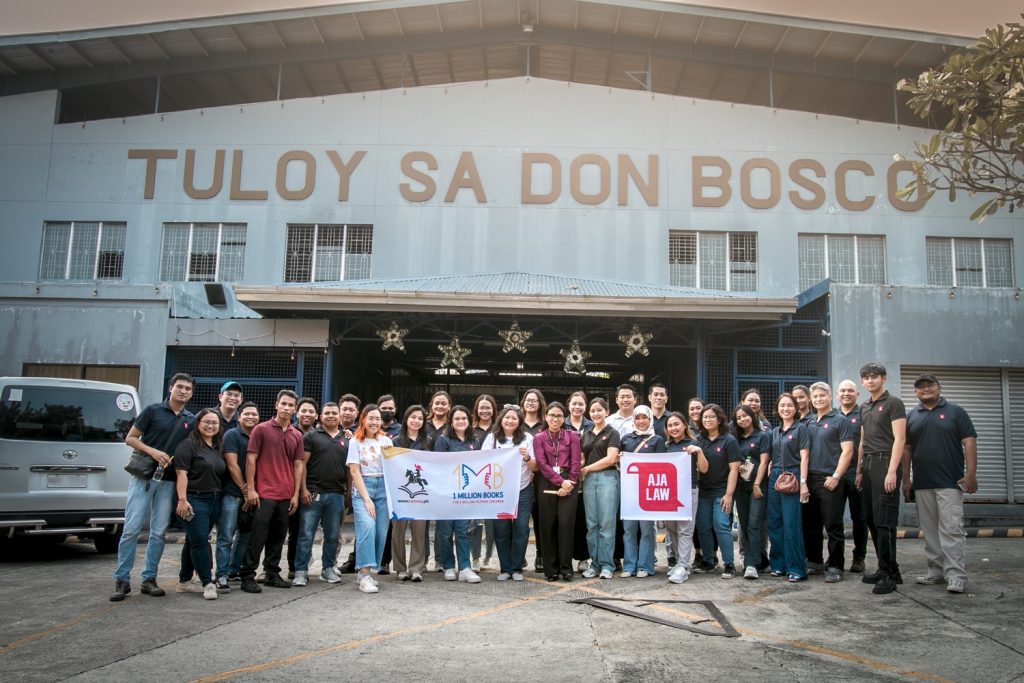Posts by AJA Law
DOLE Issues New Rules on Issuance of Work Permit to Aliens
The DOLE has released new guidelines for securing an Alien Employment Permit (AEP) under Department Order No. 248, Series of 2025. These rules aim to simplify application procedures, enhance labor market testing, enforce new compliance reporting, and require training programs to promote skills transfer to Filipinos. The updated framework strikes a balance between protecting the local workforce and facilitating foreign employment in the Philippines.
BIR issues regulations to implement the provisions of Republic Act No. 11976 or the Ease of Paying Taxes (EOPT) Act.
In line with the Ease of Paying Taxes (EOPT) Act, the BIR has issued new regulations that simplify taxpayer compliance and introduce key reforms. These include the removal of the annual registration fee, clearer taxpayer classifications, special concessions for micro and small taxpayers, and updated invoicing standards. Notably, a single “Invoice” now applies to both goods and services, and electronic systems like eFPS and the upcoming EIS are central to future compliance. These changes signal a major shift toward streamlined and responsive tax administration in the Philippines.
GPPB Implements RA 12009: A Strategic Overhaul of Government Procurement Rules
The Government Procurement Policy Board (GPPB) has rolled out the implementing rules and regulations (IRR) of Republic Act No. 12009, or the “New Government Procurement Act” (NGPA), which took effect on February 25, 2025. This sweeping reform repeals the two-decade-old RA 9184 and marks a significant modernization of public procurement in the Philippines.
Swap and Save — No Taxes, Just Gains!
Unlock business growth without the tax burden. Thanks to the CREATE Law, corporations can now restructure or expand through tax-free exchanges—no income tax, capital gains tax, VAT, or DST on qualifying transactions. This streamlined process allows companies to preserve capital, boost efficiency, and reinvest in innovation. Discover how tax-free exchanges work, when they apply, and how AJA Law can help you execute them smoothly and compliantly.
Financial Scams on the Rise: Fraud-Proof your Financial Account through AFASA
Acknowledging the need to protect the public from cybercriminals and criminal syndicates who exploit financial accounts for fraudulent activities, the government enacted the Republic Act No. 12010, otherwise known as the Anti-Financial Account Scamming Act (“AFASA”) which regulates the use of financial accounts and prevents their use in fraudulent activities.
Your Rights in the Skies: Legal Remedies to Common Airline Passenger Issues
Traveling is an adventure, but unexpected challenges like lost luggage or delayed flights can quickly turn excitement into frustration. Fortunately, Philippine laws and international agreements offer remedies to protect passengers and ensure fair compensation. Know your rights and travel with confidence!
Premature Campaigning in the Philippines: A Closer Look at the Loopholes and Legal Challenges
The proliferation of pre-campaign activities, such as posters, television appearances, and social media promotions, raises concerns about premature campaigning, a practice that circumvents election laws to gain an advantage before the regulated campaign period. Learn more about relevant laws and rules on this.
Shop Smart, Stay Protected: Your Rights Under the Consumer Act This Holiday Season
The holiday rush is here! But don’t let defective products, misleading promos, or scams turn your cheer into jeer. By understanding your rights under the Consumer Act of the Philippines, you can shop confidently and hold sellers accountable when things go wrong.
Four Years of AJA Law: Giving Back Through Stories and Community Connections with CANVAS.ph
AJA Law, in collaboration with CANVAS (@canvasph.art), proudly celebrated our 4th Anniversary and continued our advocacy for education by donating books to San Isidro Elementary School and Tuloy Foundation, fostering curiosity, creativity, and a love for learning among young minds. These meaningful events, filled with storytelling, art workshops, and shared aspirations, highlight the power of books to inspire and strengthen communities.
Understanding Grave Threats Under Philippine Law: A Look at Article 282 of the Revised Penal Code
Article 282 of our Revised Penal Code treats grave threats seriously—protecting life, honor, and property of a person and their family. Our laws underscore the importance of protecting individuals from threats that may not yet involve actual violence but are still designed to instill fear, cause distress, or coerce someone into compliance. Learn more about how our laws safeguard us from intimidation and harm.










